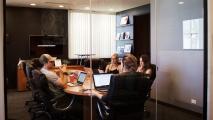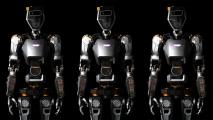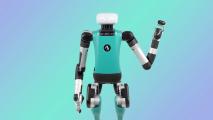The startup Scoutible has developed a video game that measures job candidates’ soft skills, making it easier for employers to find the right person to fill a vacant position.
High turnover: Most companies need people to succeed, but finding the right people isn’t easy. Within 18 months of being hired, about half of all new employees fail — they either decide for themselves that they aren’t the right fit (or their new employer decides for them).
Every time a new hire fails, a company is forced to spend time and money replacing them. Workers hired for jobs that don’t suit them, meanwhile, often have to either stick it out until they can find something better or quit and risk not being able to pay their bills.
The old guard: Companies have traditionally used resumes to decide which applicants should receive interviews and then interviews to decide which to hire.
But resumes tend to focus on hard skills, and the swift failure of new hires is only rarely due to issues with their technical abilities — only about 10% of cases — so usually there’s a mismatch involving their personality or soft skills.
Meanwhile, it’s not easy for interviewers to accurately assess a job candidate’s soft skills — if it was, there might not be so many bad hires.
Gamification: Scoutible helps employers find their perfect employees by first assessing what soft skills are needed for a role and then identifying candidates with those skills. It does this using a 15-minute app game designed to measure and quantify a player’s memory, learning style, and other qualities.
By having current employees play the game, companies can see which traits their top performers possess. They can then have potential employees play the game to find ones that might be a good addition to the team based on that initial assessment.
No cheating: Some companies already use personality tests during the hiring process to assess soft skills, but applicants might answer a question the way they think they’re supposed to and not in a way that actually reflects their personality.
If a question asks them to rate their patience on a scale of 1 to 10, for example, they may give themselves a 10 because patience is viewed as a positive trait.
You have to just sink into the game.
Angela Antony
The candidate might not consider that cutting off the dialogue of a character in a game could indicate that their patience level is closer to a five, though.
“At no point in the game is it ever obvious what the desired answer is, or how to represent yourself in a way that elicits some outcome that you think (the) employer wants,” Scoutible founder Angela Antony told Inc.
“The pacing and the situations are such that you have to just sink into the game and act based on your most authentic and instinctual responses,” she continued. “You’re just reacting to things as they occur.”
The score so far: Scoutible is still a startup, but several companies have already tested it out with positive results (at least, according to Scoutible). Compared to one retail client’s traditional interview process, the game was 4.5 times more accurate at predicting new hires’ first-year sales performance.
The big picture: Even if Scoutible doesn’t revolutionize hiring, more and more companies are looking for ways to use games to reveal potential employees’ true personalities.
Recruiting firm Oneinamil, for example, has had candidates solve puzzles together so that interviewers could see how they worked in teams. The free mobile app JobFlare lets job seekers play short brain games to prove their skills — employers can then connect with potential candidates through the app.
“Everybody’s tired of the old hiring process, so we’re looking for creative ways to match candidates with jobs,” Oneinamil CEO Lee-Anne Edwards told Workable.com.
We’d love to hear from you! If you have a comment about this article or if you have a tip for a future Freethink story, please email us at tips@freethink.com.






